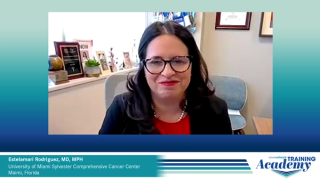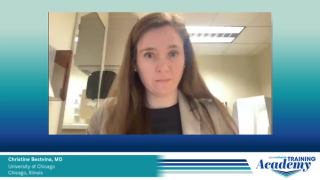
Non-Small Cell Lung Cancer (NSCLC)
Latest News
Latest Videos

CME Content
More News

Terence T. Sio, MD, MS, highlights advances such as proton beam radiotherapy that may improve outcomes for those with non–small cell lung cancer.
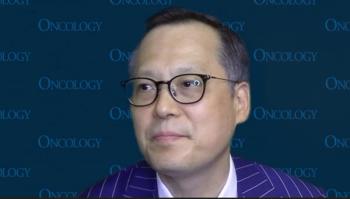
Byoung Chul Cho, MD, PhD, highlights ongoing trials assessing intravenous and subcutaneous amivantamab in EGFR-mutant non–small cell lung cancer.
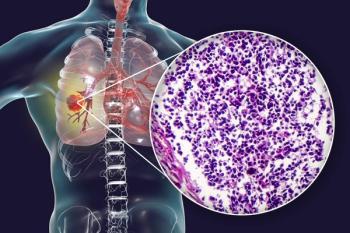
Lorlatinib may show “unprecedented” improvements in outcomes for those with advanced ALK-positive NSCLC, according to Benjamin J. Solomon, MBBS, PhD.

Efficacy Outcomes: Progression-Free Survival, Response Rates, and Duration of Response in MARIPOSA-2
This segment focuses on the key efficacy data on progression-free survival, response rates, and duration of response from MARIPOSA-2.

In this segment the panelist reviews the baseline patient and disease characteristics across the three treatment arms in MARIPOSA-2.

Data from the phase 1/2a AFM24-102 trial support the fast track designation for the AFM24 combination in EGFR wild-type non–small cell lung cancer.

The use of CT scans may help practices adaptively plan and adjust radiotherapy courses for patients with non–small cell lung cancer.

Investigators plan to present additional findings from the phase 3 TROPION-Lung01 trial at a future medical meeting.

Patients with NSCLC who have comorbidities or frailty may also be able to receive treatment with fewer toxicities via proton beam radiotherapy.

Terrence T. Sio, MD, MS, emphasizes multidisciplinary collaboration for treating patients with NSCLC who may require more than 1 type of therapy.

The NEOpredict-Lung trial met its primary end point with nivolumab plus relatlimab for patients with resectable non–small cell lung cancer.

Data from the phase 1/2 ALKOVE-1 trial support the breakthrough therapy designation for NVL-655 in advanced ALK-positive non–small cell lung cancer.

The progression-free survival end point was not met in the CheckMate -73L trial assessing patients with unresectable stage III non–small cell lung cancer.

Phase 2 data support additional investigation of lifileucel as a treatment for patients with metastatic non–small cell lung cancer.

Data from the phase 1/2 eNRGy trial support the biologics license application for zenocutuzumab in NRG1-positive NSCLC and PDAC.

T-DXd given at 2 dose levels continued to show anti-tumor activity in patients with HER2-overexpressing non–small cell lung cancer.

The panelists explore the importance of communicating with patients, nurses, and caregivers about potential adverse reactions and injection site reactions, while emphasizing the need to offer ongoing reassurance and support throughout the treatment journey.

Those who have been previously treated for KRAS G12C–mutated advanced NSCLC may benefit from treatment with glecirasib.
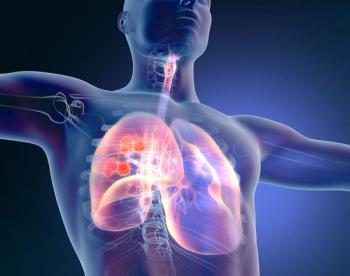
Amivantamab/chemotherapy has been recommended for approval by the CHMP in advanced non–small cell lung cancer with EGFR exon 20 insertion mutations.
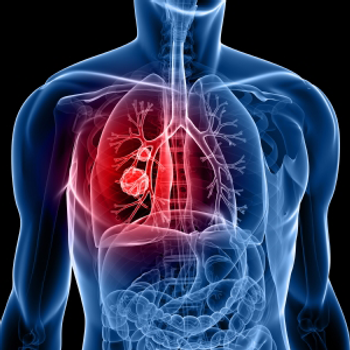
Investigators of the phase 3 ALINA trial report no unexpected safety findings with alectinib in ALK-positive non–small cell lung cancer.

A series of phase 3 findings support the European approval of tislelizumab as a first-line and second-line treatment for non–small cell lung cancer.

Richard Lazzaro, MD, discusses how a robot-assisted platform has impacted his thoracic surgery and highlights other potential advancements in the field.

The discussion on biomarker testing practices for patients with non–small cell lung cancer turns its focus to the metastatic setting.

A panel of medical oncologists introduce themselves and provide clinical insights on biomarker testing practices for patients with non–small cell lung cancer.
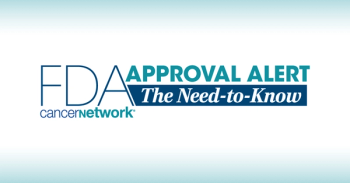
The FDA has approved alectinib for the adjuvant treatment of patients with ALK-positive non-small cell lung cancer with tumors that are least 4 cm or node positive, as detected by an FDA-approved test.






